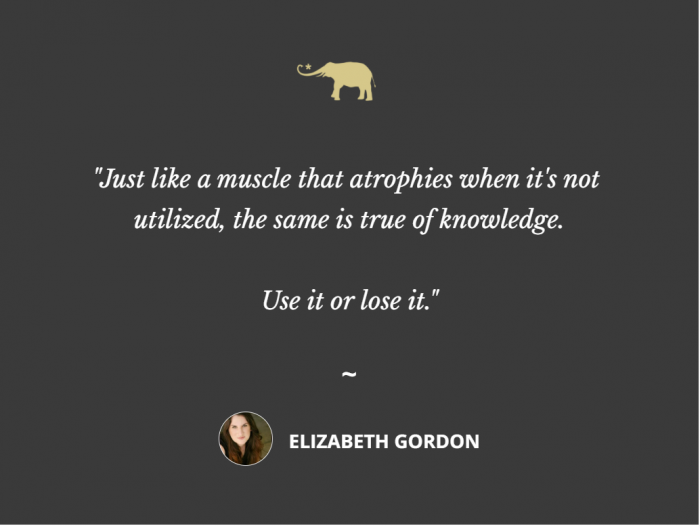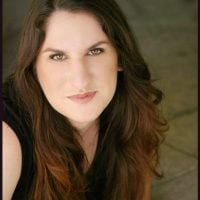View this post on Instagram
Over the summer, I purchased an online writing course that has changed my life.
Before discovering this class, I was feeling adrift in my life, unfulfilled, defeated, and unsure of how to fill my time with meaning.
It’s hard to admit that. I’ve always seen myself as a go-getter, an achiever, and way ahead of my time. I’ve always “had a plan” and some kind of forward momentum toward the next thing.
But life always comes in with its sledgehammer and has other plans, which disrupt our own and leave us feeling like the innocent victim of a sudden tornado we were not prepared for.
As I slide deeper into my 40s, I find myself feeling…bored, uninspired, and completely exhausted by life. The spark I used to feel is dwindling.
This is not uncommon. By the time 40 rolls around, we’ve likely done most of the big stuff we’re told we are supposed to do to be “happy”: get educated, have some sort of a career, fall in love a few times, and contribute something to society.
As someone on the other side of all these things, I can say with certainty that they do not bring happiness unless we are feeling good inside. Outside circumstances will always shift and change, but our inner landscape is something we can keep growing, weeding, cultivating, and nurturing.
This has been my focus this year: tending to my inner landscape.
My class has a suggested reading list that I have been devouring. As someone who relies on divine timing, I chuckle at some of the books on the list because they are ones I have been meaning to read for years. I realize now that I wouldn’t have been ready to fully receive the wisdom and guidance found in these books until now.
As I read, many of my deep-seated beliefs are shifting and dissolving for an upgrade to something more relevant to my life as it stands now.
In Think And Grow Rich by Napoleon Hill, this idea of “knowledge is power” is talked about, but with a new layer of understanding.
Knowledge isn’t power without action or will behind it.
Let’s explore this because I know many people, myself included, who have been conditioned to believe that knowledge is all we need to succeed, change, and be “happy” (whatever that means to you).
Knowledge is acquired by people every single second, but this doesn’t mean it is useful or powerful. And even though acquiring new knowledge can make us feel inspired, it’s incomplete without using it in some way.
If I learn how to do surgery on a heart but never actually perform the surgery or transfer my knowledge of the surgery to someone else, that knowledge isn’t doing anything for anyone except being ornamental.
Action is required for that knowledge to become powerful and create momentum in the physical reality.
Knowing how to change a light bulb is only the first step; you have to perform the action for your knowledge to be effective. Just knowing how to do it doesn’t get the lightbulb changed. Sure, you know how, but you aren’t doing anything with it. It’s inert, lifeless, and flat.
As a writer, I can learn all the techniques, secrets, and editing tips I want. But if I never use them in my writing or never write another word again, how is that knowledge serving me or making me better?
Short answer: it isn’t because I am not doing anything with it.
This phrase is often used when someone is trying to change and up-level their life (guilty!). To change where we are, we probably need new knowledge or perspectives. But it’s what we do with that new knowledge and perspective that counts. Simply having it isn’t enough—we have to also act upon it.
Knowing how to do yoga is ornamental unless you perform the poses. Knowing how to make a sandwich is decorative unless you make the damn thing. Knowing how to make love is only half the equation—you have to perform the act with someone (or with yourself if that’s your jam).
Many of us know how to acquire knowledge, but we haven’t been told what to do with it.
In Think And Grow Rich, Hill explains, “Knowledge is only potential power. It becomes power only when, and if, it is organized into definite plans of action and directed to a definite end.”
So, going back to the surgery example, you must schedule the surgery and do the cutting for your knowledge to have a physical and lasting effect. Otherwise, it just hangs out in your head with all the other knowledge, collecting dust and waiting around.
I think many of us have found ourselves in this boat. Because “knowledge is power” is such an accepted belief without much examination, we conclude that simply gaining knowledge will change our lives or make things better. Having the knowledge (we believe) is all we are responsible for.
But knowledge itself doesn’t move anything ahead without action behind it—without taking the risk, making a plan, and setting a goal.
I have known lots of people with higher education degrees that didn’t help them because they weren’t put to use. The diploma in your hand does nothing for you if you don’t apply the knowledge and allow it to serve you in action. Just having the knowledge does not move you ahead—taking action based on that knowledge will.
What are some things you know how to do, but never quite get around to physically doing them? How is that knowledge serving you? It isn’t, because just like a muscle that atrophies when it’s not utilized, the same is true of knowledge.
Use it or lose it.
Now that you know this, what will you do with it?
Try this. Think of something you’ve learned but never truly put to use. It could be something big like your college degree or something smaller like a kitchen hack you’ve been meaning to try out.
Now, go do it or create something with it and take note of how you feel.
That feeling of accomplishment, momentum, and drive will carry you through to the next action, creating a waterfall effect that starts to spill over into all the other parts of your life.
Actions are what create our realities. It’s what we choose to do with our knowledge that informs where we are, how we feel, and what we desire.
These words from Ralph Waldo Emerson sum up this concept beautifully, “Do the thing and you shall have the power.”
~


 Share on bsky
Share on bsky





Read 12 comments and reply